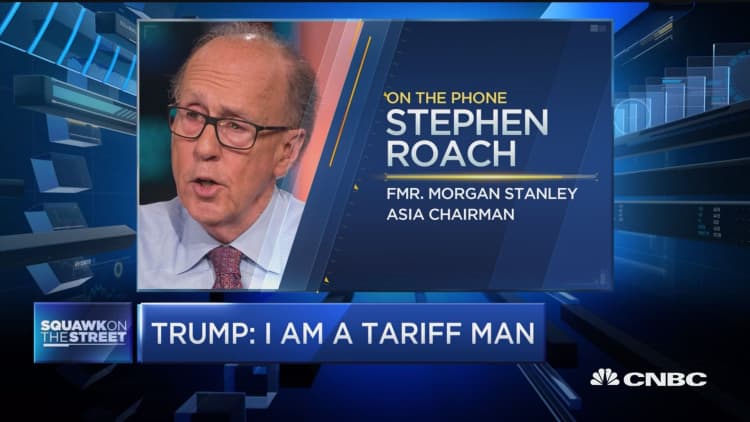
President Donald Trump threatened Tuesday to slap more tariffs on China if efforts to strike a trade deal with Beijing crumble.
The world's two largest economies reached a 90-day trade truce Saturday after Trump and Chinese President Xi Jinping met at the G-20 summit in Argentina. In a series of Tuesday morning tweets, the president showed optimism about reaching a "fair deal," but stressed that he is "a Tariff Man" if talks fail.
Later Tuesday evening, Trump said he believed China and the US could reach an agreement on trade. However, he threatened to impose tariffs against China if it does not agree to a 'real deal.'
Trump evening tweet 1
The Trump administration has sought changes in its trade relationship with China to fix what it calls trade abuses. The White House has already put $250 billion in duties on Chinese goods, promising tariffs on a separate $267 billion if Beijing does not change its practices. China has imposed duties on about $110 billion in U.S. products.
The prospect of more tariffs, affecting the Chinese economy and a broader range of American businesses, has sparked concerns about slowing global growth. Trump says he wants to de-escalate trade tensions with China but insists on Beijing addressing long-standing issues such as intellectual property theft, forced technology transfers, and tariffs and nontariff barriers.
After some confusion Monday about who would head the talks with China, Trump suggested Tuesday that U.S. Trade Representative Robert Lighthizer would take the lead, "working closely with" Treasury Secretary Steven Mnuchin, economic advisor Larry Kudlow, Commerce Secretary Wilbur Ross and trade advisor Peter Navarro. In his tweets, the president said his advisors will work on "seeing whether or not a REAL deal with China is actually possible."
"If it is, we will get it done. ... President Xi and I want this deal to happen, and it probably will," he said.
Top Wall Street economists have expressed doubts about the two sides reaching a concrete agreement.
Trump again claimed Tuesday that more tariffs on China would actually help the U.S. He contended that he has made China "pay for the privilege" of raiding "the great wealth of our Nation."
"We are now taking in $billions in Tariffs. MAKE AMERICA RICH AGAIN," he tweeted.
Trump has exaggerated the effect of the tariffs on U.S. revenue. Tariff revenue in fiscal 2018 rose by less than $7 billion from the previous year, less than 2 percent of the $3.3 trillion the Treasury collected overall.
Those costs also largely fall on American businesses and consumers. Sen. Ben Sasse, a Nebraska Republican and opponent of Trump's tariff policy, criticized the president's tweets on that basis.
"Tariffs are taxes on American families," Sasse wrote.
WATCH: Twelve US execs explain how Trump's trade war affects their bottom lines



